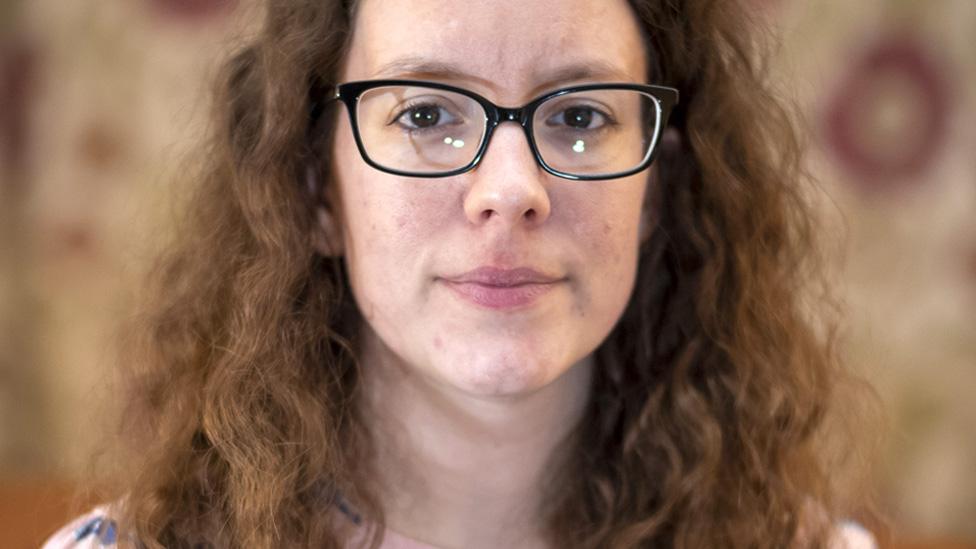Shrewsbury maternity scandal: 'We've had to fight all the way for this'
- Published
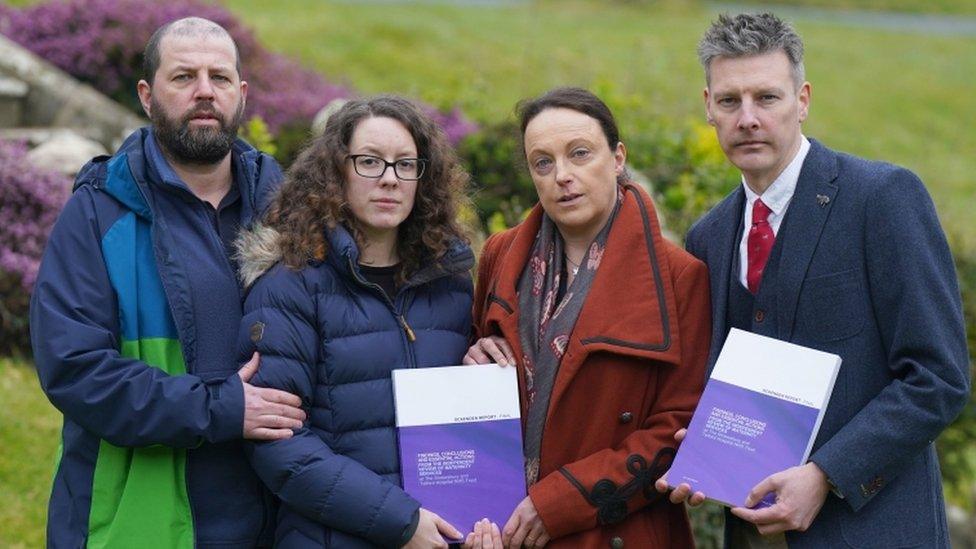
Colin and Kayleigh Griffiths, Rhiannon Davies and Richard Stanton have fought for years for a full inquiry into failings in Shropshire
They met in the most heartbreaking of circumstances - two families united in grief after losing their daughters within hours of being born.
The tragedies happened seven years apart, but the parents of Kate Stanton-Davies and Pippa Griffiths refused to give up when they were repeatedly told by hospital chiefs their babies' deaths were not unusual.
Donna Ockenden's report, and its shocking findings of widespread failures at Shrewsbury and Telford Hospital NHS Trust (SaTH), is the culmination of a long, unwavering campaign by those two families to learn the truth about why their girls - and many others - died.
Kayleigh Griffiths and Rhiannon Davies embraced in tears following senior midwife Ms Ockenden's delivery of her conclusions at a hotel in Shropshire.
At least 201 babies may have survived if they had received better maternity care, she said. This includes 131 stillbirths and 70 neonatal deaths.
A further nine mothers died due to major or significant concerns about their care at SaTH, and at least 94 children suffered avoidable harm due poor maternity care, including cerebral palsy and hypoxic brain injuries.
"We've had to fight all the way along in this, so to finally be heard by Donna is a great achievement for all families," said Mrs Griffiths.
"It's bittersweet. It's an accomplishment, but it didn't need to happen," her husband Colin Griffiths added.
"It shouldn't have happened in the first place."
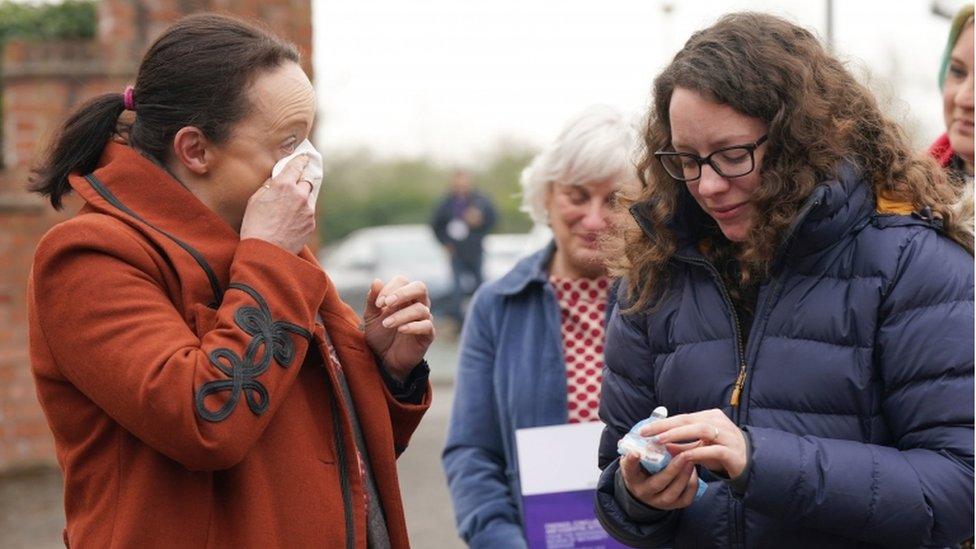
The day they waited years for finally came on Wednesday for Rhiannon Davies and Kayleigh Griffiths
The families met in 2016 when Mrs Griffiths contacted Ms Davies by email, having seen her in the media, desperately fighting for answers.
Kate died on 1 March, 2009 at just six hours old. Her mum had explained to midwives she wasn't moving as much in the days leading up to the birth, but she was told she had a "lazy baby".
When she was born at Ludlow community hospital, Kate started "murmuring" and a midwife said she was trying to cry. But the newborn was in respiratory distress.
Baby Kate was airlifted to Birmingham Children's Hospital. Her mother collapsed and was sent to hospital in Worcester, 30 miles away from her daughter.
Kate's father Richard Stanton was alone when he cradled his little girl as she died.
Seven years later, and Mr and Mrs Griffiths were in the same devastating circumstances. They lost their daughter Pippa when she was just 31 hours' old.
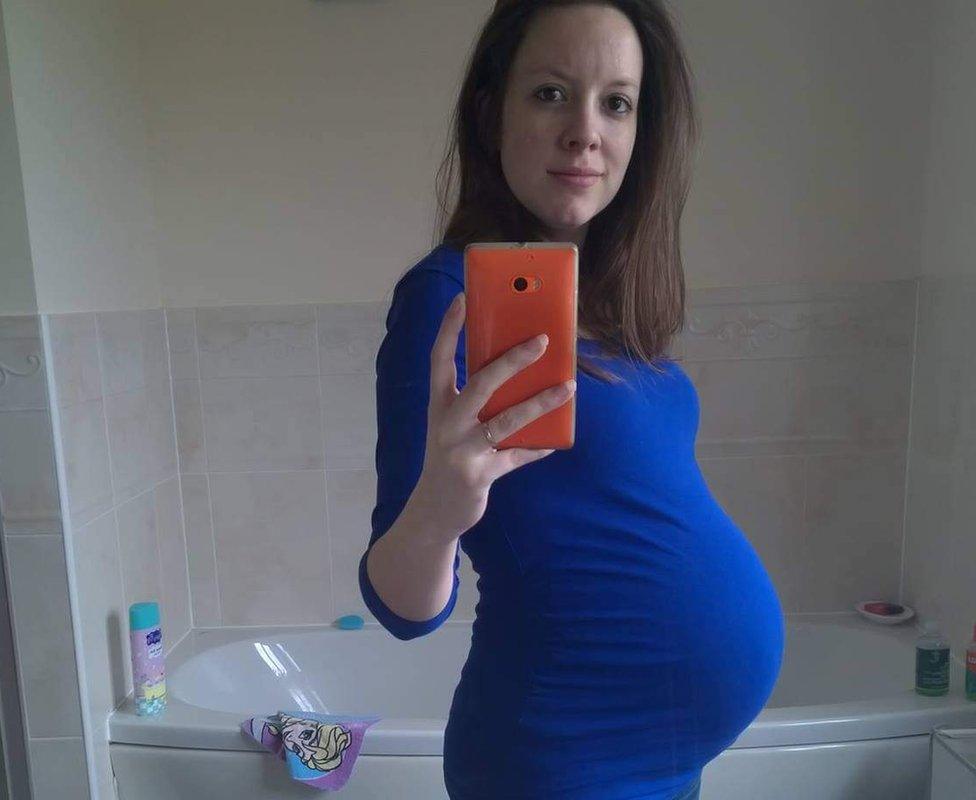
Kayleigh Griffiths took a selfie the day before she gave birth to Pippa
She'd been born at home, but when she began coughing up a brown liquid and her mum called Shrewsbury midwives for help four times, she was repeatedly told not to worry.
Pippa was unresponsive the following day. Her father tried to resuscitate her as the ambulance arrived, but she died that afternoon from a Group B Streptococcus infection.
In both cases, SaTH concluded investigations into both babies' deaths were not required, insisting their practices were safe.
But the parents knew instinctively those conclusions were wrong. What they did not know, at that time, is that they were on the brink of uncovering one of the biggest NHS scandals in history.
They compiled their own dossier of 23 babies' deaths they were certain should not have happened.
When they presented the evidence to Jeremy Hunt in 2017, their second meeting with the then-health secretary, he ordered an inquiry.
Ms Davies said: "It was definitely beneficial for us to meet Mr Hunt and for him to see our faces and hear our story so that when we presented the 23 cases to him later, and said, 'remember us, remember the impact, we're not the only ones', he did the right thing and requested an investigation."
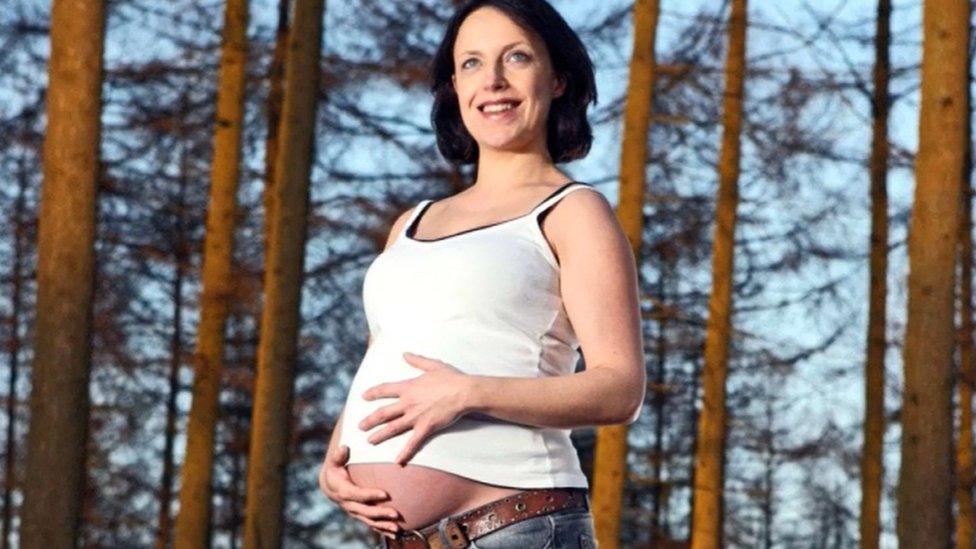
Richard Stanton took this photograph while Rhiannon Davies was pregnant with their first daughter
The inquiry by senior midwife Donna Ockenden began looking at those 23 cases. But it was expanded to investigate almost 1,600 after concerned families came forward with their stories in droves.
The families have faced several delays of the report's publication but on Wednesday, finally got the answers they had battled so long to get.
Kate's parents said they were hopeful Ms Ockenden's report could transform maternity care across England.
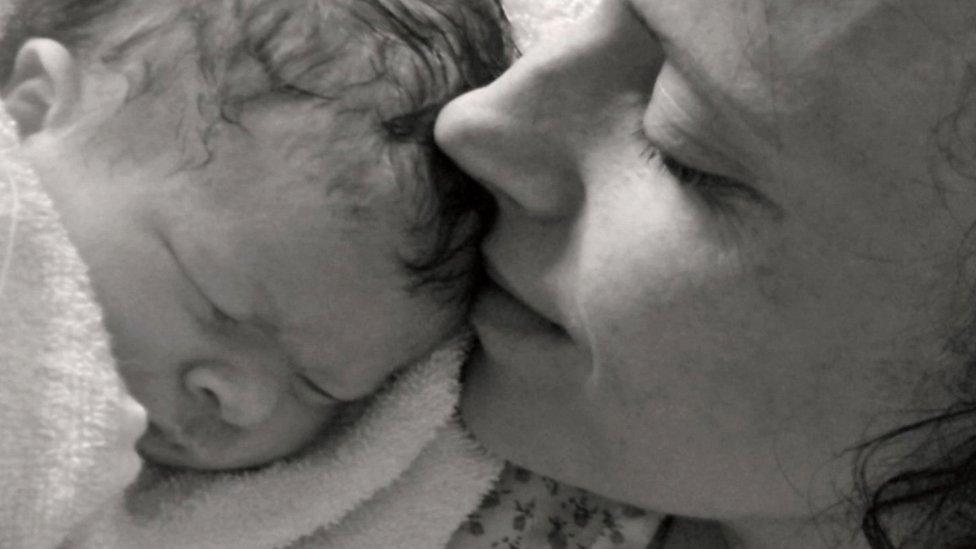
Rhiannon Davies and her newborn daughter Kate
"This report can make a difference, this report could be a legacy, it should be," said Ms Davies.
"However, we've had Mid Staffs, we've had Morecambe Bay, we've had reports before and learning has not been embedded and changes have not happened."
She added: "What I really fail to understand is why it has taken the persistence of families, supported by the media, to bring this to light, for the learning to happen and gifted to the NHS - why didn't anyone else want this?
"Why didn't the clinicians on the front line want this? Why didn't the regulators, the clinical commissioning group and the Care Quality Commission want this - why didn't they care enough to look closely at what was going on? The evidence was really there, it's so clear - why did nobody want to learn and change?"
Richard Stanton said: "We have gifted the NHS the opportunity to learn from Donna Ockenden's report in the name of Pippa and Kate and the other families.
"Now it's time for the NHS to go away and do exactly that."

The "level of harm" Adam, 11, went through at birth was "life changing", his mum said
The Reverend Charlotte Cheshire, 44, from Newport, Shropshire, is among the hundreds of families who came forward as part of the review.
Her son was left with multiple, severe health problems after contracting Group B Strep infection after his birth in 2011.
She said her concerns had been dismissed by staff at the trust, which she is now suing.
Adam, now 11, spent a month in intensive care after his birth when it was finally discovered what was wrong.
She said she hoped there would be "genuine learnings" from the review.
"Not the sort of, 'oh, we'll learn and get back to you', but genuine learnings to improve maternity safety - primarily first of all at Shrewsbury and Telford, but secondly across the country as a whole," she said.
"I don't want any other family to have to go through what we've gone through."
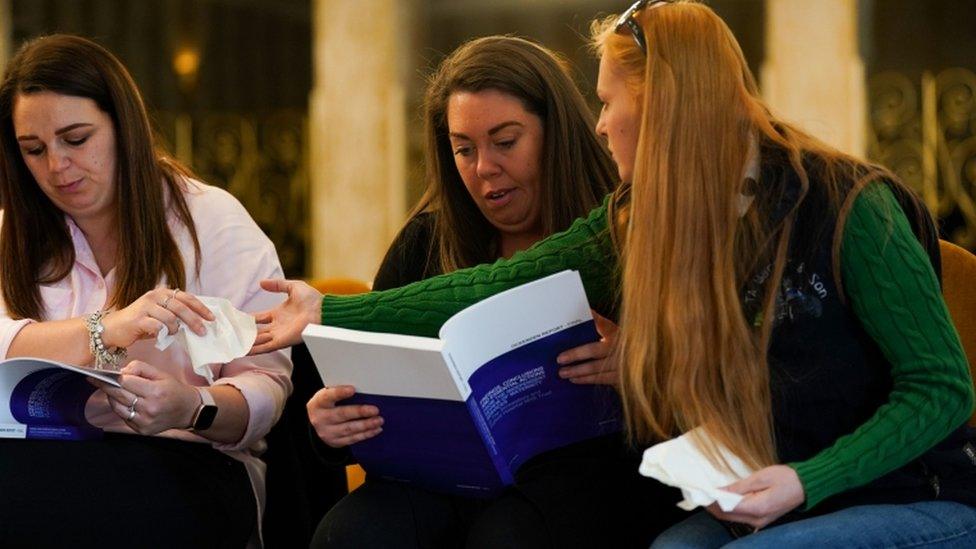
Families gathered in Shropshire to learn of Ms Ockenden's findings
Julie Rowlings, whose daughter Olivia died after 23 hours of labour following a consultant's use of forceps, said she hoped to get a personal apology from SaTH.
"I want them to apologise face to face for what they put us through," she said.
"I'd like them to apologise for ignoring what we were trying to tell them at the time. It would go a long way."

Follow BBC West Midlands on Facebook, external, Twitter, external and Instagram, external. Send your story ideas to: newsonline.westmidlands@bbc.co.uk, external
- Published23 February 2022
